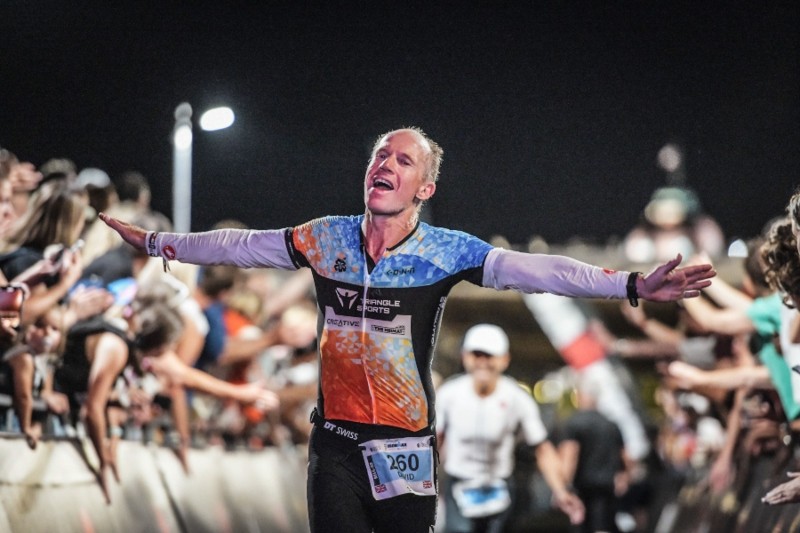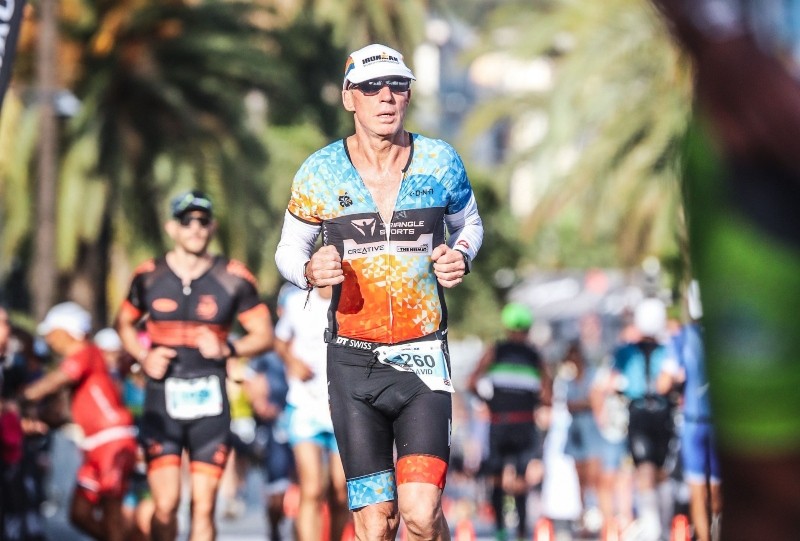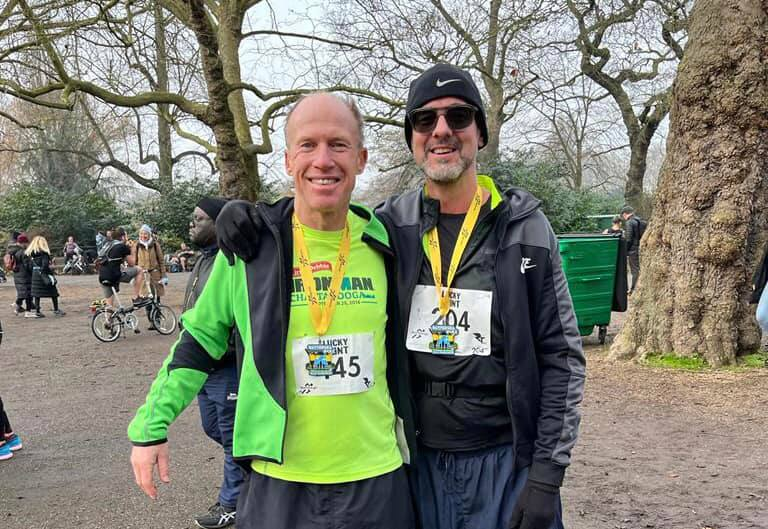A Snapchat message or Instagram reel flashes up and disappears, never to be seen again.
You can delete your online search history.
The EU’s GDPR directive gives you the ‘right to be forgotten’.
Google will phase out third-party cookies by the end of 2023.
We’re entering a new era of deliberate digital forgetfulness, in which privacy havens are fortified against a tide of publicly available data.
Beyond the technical details, this movement poses new threats and opportunities to businesses. Can we avoid the mistakes of the past if we don’t remember them? Or is it more important to look ahead, unburdened by pain and unwanted baggage?
It also directly correlates to how athletes achieve great results.
Let go of the past

“Athletes who quickly forget the last play often succeed, while other athletes bogged down by frustration and embarrassment usually continue to play below their potential,” says sports psychologist Dr Chris Stankovich.
True winners redirect their focus to the future, having developed the self-discipline to let go of stress, adversity, frustration and failure. “Use positive reinforcement,” he counsels. “It will become natural and automatic to simply let go of things that have already occurred and cannot be changed.”
In a recent Ironman race in Nice on the French Riviera, I fell into a deep mental trough during the marathon run. Exhausted, nauseous, legs cramping, heart rate spiking, I struggled to shake off the contrast between my optimistic hopes of a strong time and the reality of a 14-plus hour finish. “Why am putting myself through this hell?” I wondered, lurching along the Promenade des Anglais under a burning sun, a fierce wind slowing me even further.
Gradually, as the finish line came closer, I put these thoughts aside and began to think positively. “Look at all the people still coming in from the bike!” I told myself, commiserating as they stumbled onto the marathon course. (Afterwards, I discovered that more than 320 people out of 2000 failed to finish).
Instead of bemoaning my physical pain, I reflected on the achievements of the day: a strong 3.8km swim in the Mediterranean, my best result for three years. A long, horrifically steep, twisty, dangerous and hot 180km bike course rising high into the alps. Thank goodness I didn’t crash like several others, lying motionless on the road as ambulances sped into the mountains to save them.
Ironman Nice is among the toughest long-distance triathlon races in the world. There is more climbing – 2,500m – than any other Ironman, it’s ridiculously hot and has a much higher DNF (‘did not finish’) rate. Only a fraction of Ironman triathletes even attempt it.
Positive mindset

So completing the event is a triumph, at whatever speed. That’s what I decided to remember, helping me to ignore the agonies of the moment. By the time I crossed the finish line, I was ecstatic. The roar of the crowd, the fulfilment of months of training, the promise of a medal… everything conspired to erase pain and inject pleasure.
This positive mindset is an invaluable asset in business.
Anthony Goodwin, founder and CEO of global recruitment consultancy Antal International has lived through recessions, business and personal setbacks, acute financial challenges, legal and regulatory nightmares in China, Russia and elsewhere, yet remains resolutely optimistic. “The best is yet to come!” he says, unburdened by the pain of historical troubles.
Head of Antal’s Romanian office, Irina Vasile, is constantly inspired by Goodwin’s forward-looking approach. “I learn from him all the time,” she says. “He never gives up, never sits at home, he’s super-optimistic, super energetic, full of ideas.” She values the personal contact that Goodwin has instilled throughout the company, giving one another emotional support to overcome tough times. Antal International COO Sagar Ruparelia agrees: “We’ve seen bad patches within the group and that experience helps us. It acts as motivation, because we’re now in a better space,” he says.
Like me, Goodwin draws strength from sport in his personal life, running a marathon aged 59 in the exceptionally quick time of 4 hours 7 minutes. Previous failed attempts went into the mental trash can. All that mattered on the day was the road ahead, staying present, eyes on the prize.
Imprisoned with pain

Dr Scott Small at Columbia University says: “The ability to forget helps us prioritize, think better, make decisions and be more creative.” His book ‘Forgetting: The Benefits of Not Remembering’ outlines the curse of retaining the past. “To hold on to hurts, petty resentments and traumatic experiences is a burden, and at worst, imprison us with pain.”
He draws a link with PTSD, where unshed recollections “remain embedded in the mind like shrapnel, impeding the brain’s natural recovery. [PTSD] is a disease of too much emotional memory – a ‘brain on fire’ disorder, characteristic of other psychiatric conditions, such as obsessive-compulsive disorder, anxiety disorders and phobias.” Even a good marriage depends upon the ability to forget, he says.
Dr Small argues that social interaction, friendship, love and engagement with life are the best antidotes to toxic memories; all things that have been harder to find during the enforced isolation of the pandemic. The consequences have been profound and life-shattering for some. Vladimir Putin’s inability to forget Russia’s humiliation in the Cold War accounts for his pointless and disgusting invasion of Ukraine, psychologists argue.
Social animals

For businesses grappling with the complexities of hybrid working, this concept is instructive: however many employees enjoy the freedom from commuting, the comfort of their homes and the convenience of videocalls, humans remain social animals and thrive in contact with one another, coming to an accommodation which they struggle to achieve in isolation.
You can detect this intransigence and polarisation in American politics and society. If millions of Democrats and Republicans still worked together in the same physical space, would they hate one another with such venom?
From the microcosm of an Ironman triathlon race to the decades-long sweep of a company history, to the long and bumpy road of a marriage, to geopolitical conflict, the ability to forget is a quality worth remembering.
David Nicholson runs www.freelancejournalist.co.uk – providing journalism to publications and companies. Contact David at [email protected] or mobile 07802 834477.
Anthony Goodwin is founder and CEO of Antal International – www.antal.com – with more than 800 people in 35 countries.
Recent Posts
- Why 2026 Will Be the Year of “Selective Careers,” Not Job Hopping By Antal International
- What FCA Scrutiny Is Doing to Hiring Decisions in UK Banks By Imo Etuk
- January Reset: What the First Days of 2026 Reveal About the Job Market By Antal International
- Why UK Banks Struggle to Hire Heads of Compliance and MLROs By Imo Etuk

